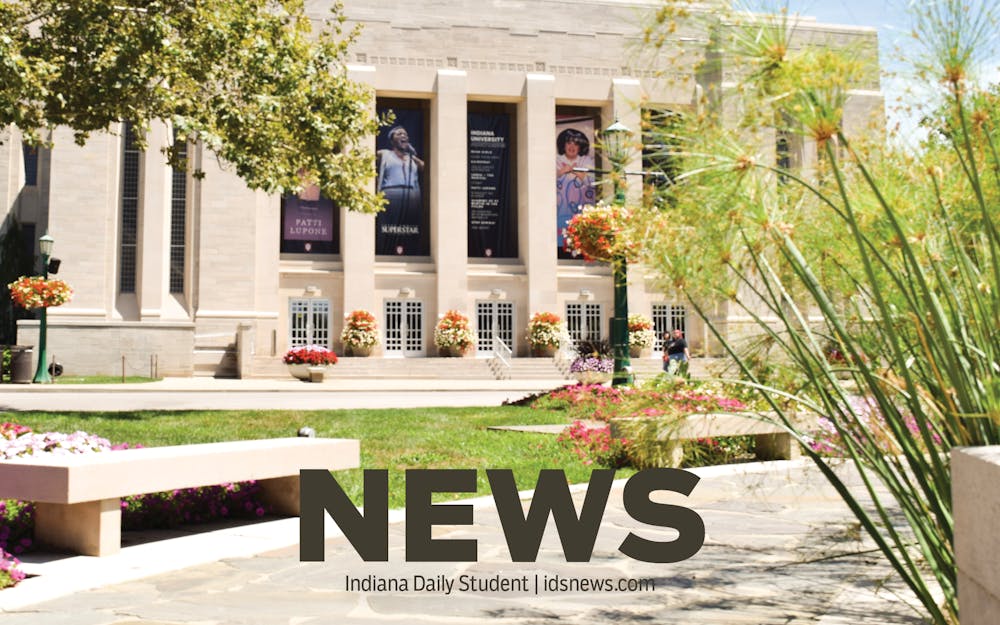Carl Lejuez, IU’s second chancellor finalist, met university faculty at a town hall Thursday in the Whittenberger Auditorium at the Indiana Memorial Union.
The first candidate for the newly reinstated position, David Reingold, visited IU on Feb. 27 for a similar event.
President Pamela Whitten said in an email to the Bloomington campus last June that the chancellor position would be reinstated to oversee diversity, equity and inclusion initiatives, campus finances and student life.
The position was last held by Kenneth Gros Louis but was eliminated in 2006. Since the announcement, a search committee of IU students, faculty and staff have aided the Bloomington Faculty Council and executive search firm Isaacson, Miller in selecting candidates.
A press release from June 2024 by the university said that an ideal candidate would be someone familiar with IU Bloomington who would devote time to develop an understanding of its community.
Lejuez is the current executive vice president and provost of Stony Brook University in New York. Before his appointment to the university in 2022, he was the provost and executive vice president for academic affairs at the University of Connecticut from 2020 to 2022.
He was the dean of the College of Liberal Arts & Sciences at the University of Kansas from 2016 to 2018 and its interim provost and executive vice chancellor from 2018 to 2020. Lejuez has been a psychology professor at various colleges since 2000.
He spoke Thursday in front of a crowd of about 30 faculty, addressing their concerns about free speech, student protests and diversity.
As provost at SBU, Lejuez said he communicated with students and faculty that the university would not take steps to preemptively appease the federal government.
“We always have to follow the law, but we are also not going to stop important programs,” Lejuez said. “We’ve managed to increase the number of Black, Indigenous, and Latinx students while also staying within the law and what we’re required to do with Supreme Court decision.”
According to fall enrollment data from Stony Brook, the percentage of Black or African American students increased by 0.3% from 2023 to 2024 and the percentage of Hispanic or Latino students was up by the same amount.
During the Q&A session, a faculty member mentioned that Lejuez had served in three provost positions in the past seven years and asked why he thought IU would be better off with someone who was a “professional administrator” rather than someone who had spent a lot of time on Bloomington’s campus. The faculty member said he was apprehensive, wondering if Lejuez would move to a new position in four or five years.
“I don’t want to have another job after this,” Lejuez said. “I never really wanted to.”
Lejuez said he experienced frequent administration changes in his past positions, having had 11 supervisors in nine years, and that the mood at Stony Brook was low when he assumed the role of provost, with students and faculty expressing limited trust in the position. Lejuez said after he became provost, Stony Brook’s president left, and the university has had two additional presidents since then.
“Let me tell you that I’m excited about this job,” Lejuez said. “There are amazing faculty and staff and students. There are really transformative things happening, but there’s really good disciplinary excellence, and that is inspiring.”
Elizabeth Dunn, associate dean for graduate education at the College of Arts and Sciences, asked Lejuez about his views on protecting free speech on campus.
He said when thinking about free speech, people also have to think about how they treat each other and how to hold each other accountable for their actions in a time when supporting academic freedom can be challenging.
“We support not just the letter but the spirit of faculty and other scholars, researchers, performers, being able to do their work in a way where they do not feel a chill in what they’re trying to do,” Lejuez said. “In which the university is doing everything we can to support them, and sometimes that means when they’re controlled.”
Another listener asked him to share his views on campus student protests. IU’s expressive activity policy took effect last August after pro-Palestine protest encampments in April 2024 led to arrests and controversy.
Lejuez said when students protested while he was provost at UConn, he opened up the provost office and allowed students to come in and speak with administrators.
“They want to stay all night? Then we stay all night with them,” he said.
He said that now his view of protests has changed as students are protesting laws and global events that lie outside of administrative control and that university guidelines had to be supported.
“I would love to believe there is a way where we can be more open to protest and that we can support students and faculty,” Lejuez said. “But where that cuts over into other people’s sense of safety at the university, where it cuts into Title VI, where it cuts into creating threats for the university, it’s just not as simple as I felt like it could be before.”
He said he would hope to have a group of faculty experts in the area to consult with if protests were to happen so he could be as informed and thoughtful as possible when working with President Whitten’s cabinet.
It is unclear when IU will select a chancellor, but candidate feedback surveys from the town halls are posted on the executive search webpage.




